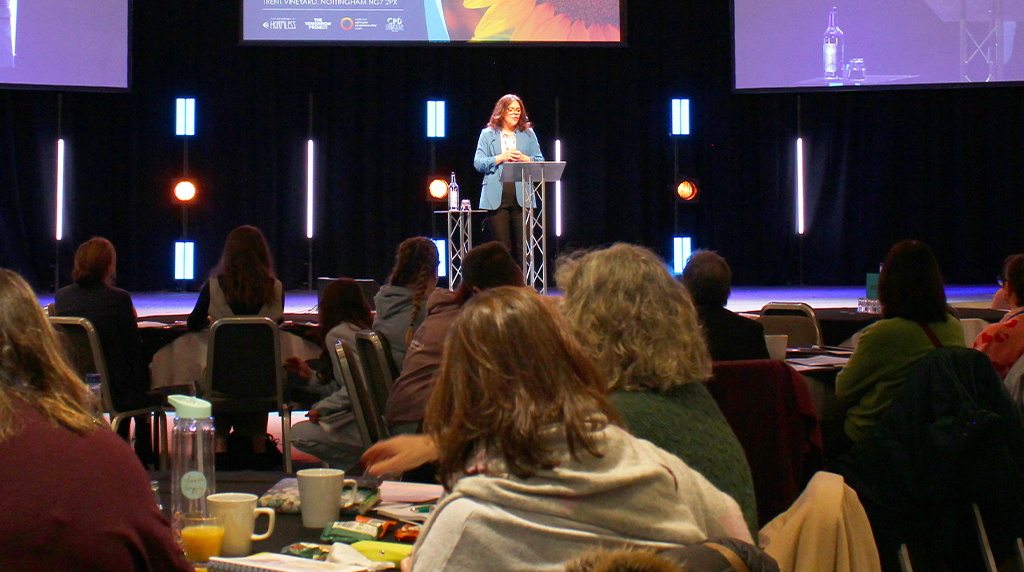By Tom Coyle (Clinical Support Worker)
Have you ever heard someone say something like ‘Gosh my desk is so tidy, I’m so OCD!’ or ‘I like to clean my flat once a week – I must have OCD’? Many of us can probably think of someone in our office, classroom family or friendship group who has said something similar.
The reality of obsessive–compulsive disorder (OCD) is far more debilitating than simply being clean, tidy or organised. Statements like these may seem harmless, but they can be damaging for people living with OCD. This is a form of stigma – negative attitudes, beliefs or behaviours towards individuals with mental health conditions. Stigma has been shown to significantly reduce quality of life for those with OCD, and can even worsen symptoms such as obsessions and compulsions (Garg, Kaur & Raj, 2023). It can also foster a deep sense of shame, which may prevent people from seeking help and delay effective treatment (Grassi et al., 2015; Veale & Roberts, 2014).
So, what can we do to reduce the stigma surrounding OCD?
Increasing understanding of OCD
One key step is improving awareness of what OCD actually is. According to OCD UK (n.d.), an estimated 750,000 people in the UK live with OCD – around 12 in every 1,000 people (1.2% of the population). OCD affects people of all ages, genders and backgrounds. Research suggests it may be more common among young people, with higher rates in males during childhood and in females during adolescence and adulthood (Mathes et al., 2019).
So, what is OCD?
Breaking down OCD
OCD can be understood through several elements:
Obsessions
Persistent, intrusive thoughts, images or urges that dominate thinking, cause distress and interfere with daily life. Common examples include:
- Fear of harming yourself or others accidentally (e.g., leaving the door unlocked, forgetting to switch off the hob)
- Fear of deliberately harming yourself or others (e.g., feeling you might intentionally cut yourself while chopping food with a knife)
- Fear of contamination (e.g., belief that not washing your hands will make you seriously ill)
- A need for symmetry or order (e.g., lining up tins in the cupboard so they face the same way)
Compulsions
Repetitive behaviours or mental acts performed to reduce the anxiety caused by obsessions. These can appear irrational to others – and even to the person experiencing them – but are difficult to resist. Common examples include:
- Repeated checking (doors, windows, switches)
- Ordering and arranging
- Excessive cleaning or handwashing
- Hoarding items
- Avoiding certain people or places
Intrusive Thoughts
Unwanted, distressing and often disturbing mental images, urges or ideas. Examples include:
- Thoughts of someone breaking into your home
- Fears of family or friends dying
- Imagining something terrible happening to them
You can find more information on NHS – OCD or OCD UK.
Why understanding matters
Some people are able to manage OCD with coping strategies, but for others it can become severely debilitating. Severe OCD has been linked to increased impulsivity and risk-taking behaviours (Grassi et al., 2015). Higher impulsivity may raise the risk of self harm (Lockwood et al., 2016), and research shows people with OCD are at greater risk of experiencing suicidal thoughts or ideation (Albert et al., 2019).
This is why it’s so important to move beyond misconceptions. OCD is not ‘just being neat’ – it can be deeply distressing and challenging to live with. Support from friends, family and professionals can make a huge difference.
You’re not alone
If you’re experiencing anything described in this article – or if you feel distressed by your obsessions or compulsions – we at Harmless and The Tomorrow Project want you to know there is no shame or guilt in seeking help. You deserve support. We can provide a compassionate, understanding and non-judgmental space to talk about your experiences, including intrusive thoughts related to self harm or suicidal feelings.
You are not alone. We are here to support you.
To make a referral for support – for yourself, someone you know or on behalf of a client/patient – click here. You can also call us on 0115 880 0280 or email info@harmless.org.uk with any questions.
Need Help Now?
- Call the Samaritans on 116 123 for 24/7 listening support.
- Text SHOUT to 85258 for 24/7 text message support.
- Create an individualised safety plan here: https://yoursafetycomesfirst.co.uk/
- If you need urgent mental health support, call NHS 111 and select Option 2.
- If you are in an emergency and need immediate help, please contact the emergency services on 999.
___________________________________
References
- Albert, U., De Ronchi, D., Maina, G., & Pompili, M. (2019). Suicide Risk in Obsessive-Compulsive Disorder and Exploration of Risk Factors: A Systematic Review. Current neuropharmacology, 17(8), 681–696. https://doi.org/10.2174/1570159X16666180620155941
- Garg, R., Kaur, R., & Raj, R. (2023). Quality of life among patients with obsessive compulsive disorder: Impact of stigma, severity of illness, insight, and beliefs. Industrial Psychiatry Journal, 32(1), 130–135. https://doi.org/10.4103/ipj.ipj_22_22
- Grassi, G., Pallanti, S., Righi, L., Figee, M., Mantione, M., Denys, D., Piccagliani, D., Rossi, A., & Stratta, P. (2015). Think twice: Impulsivity and decision making in obsessive-compulsive disorder. Journal of behavioral addictions, 4(4), 263–272. https://doi.org/10.1556/2006.4.2015.039
- Lockwood, J., Daley, D., Townsend, E., & Sayal, K. (2016). Impulsivity and self-harm in adolescence: a systematic review. European Child & Adolescent Psychiatry, 26(4), 387–402. https://doi.org/10.1007/s00787-016-0915-5
- Mathes, B. M., Morabito, D. M., & Schmidt, N. B. (2019). Epidemiological and Clinical Gender Differences in OCD. Current psychiatry reports, 21(5), 36. https://doi.org/10.1007/s11920-019-1015-2
- NHS UK (2022, August 16). Obsessive compulsive disorder (OCD).
https://www.nhs.uk/mental-health/conditions/obsessive-compulsive-disorder-ocd/ - Occurrences of OCD | OCD-UK. (n.d.). https://www.ocduk.org/ocd/how-common-is-ocd/
- Veale, D., & Roberts, A. (2014). Obsessive-compulsive disorder. BMJ, 348(apr07 6), g2183. https://doi.org/10.1136/bmj.g2183




